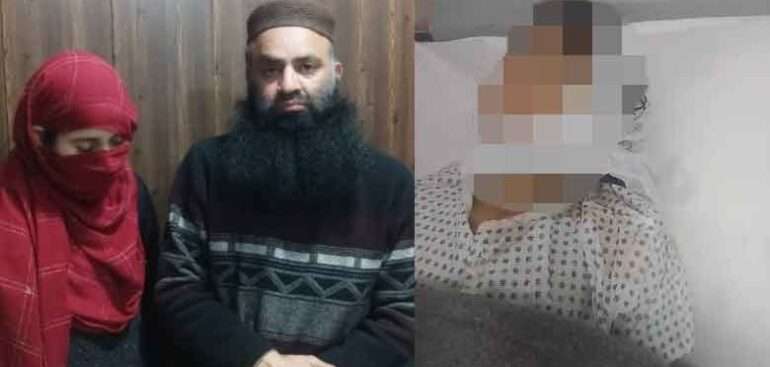A child’s laughter should echo in playgrounds, not be silenced by cruelty. A child’s hands should hold books and toys, not bear the scars of servitude. But for Iqra, a 13-year-old girl from Rawalpindi, life was never about innocence or dreams—it was about survival. Until, in a moment of horrifying brutality, it was taken from her forever.
Iqra was just eight when she was sent to work as a maid, her childhood sacrificed at the altar of poverty. Her father, a struggling farmer burdened by debt, had no choice. What could he do when hunger gnawed at his family’s bones? With every penny she earned—just £23 ($28) a month—she kept their household afloat. But her fate was sealed in a house where kindness was absent, where cruelty was routine, and where a piece of chocolate became the price of her life.
Last Wednesday, Iqra succumbed to unimaginable abuse. Accused of stealing chocolates, she was beaten mercilessly by the very people who were supposed to care for her. Her frail body bore the evidence of repeated torture—broken arms, fractured legs, and a severe head injury. When she was finally taken to the hospital, it was too late. She lay unconscious, her breath fading, her young life extinguished before she could even open her eyes one last time.
Her father, Sana Ullah, arrived at the hospital, heart pounding, praying for a miracle. But fate had already turned its back. Iqra breathed her last before he could say goodbye.
The couple, Rashid Shafiq and his wife Sana, who employed Iqra, have been arrested. But history tells us justice is fleeting in such cases. Often, perpetrators walk free, hidden behind wealth and power, as the poor are forced to “forgive” in the name of God—often in exchange for money, a cruel irony when poverty was the very reason these children were forced into labor.
In 2018, a similar case had shaken Pakistan. A 10-year-old girl, Tayyaba, was found with burns, cuts, and a swollen face—punished over a lost broom. The couple responsible, a judge and his wife, were sentenced to three years, later reduced to just one. What does this say about a system that values the suffering of the poor so little?
Social media is ablaze with anger, demanding #JusticeForIqra. “She died over chocolates?” a user asked in disbelief. “This is not just a crime; it’s a reflection of a system that allows the rich to treat the poor as disposable,” another wrote.
But will this rage translate into real change? Or will Iqra, like so many others, be forgotten—her story just another tragic whisper in the wind?
Iqra was just one of millions. According to UNICEF, 3.3 million children in Pakistan are engaged in child labor. Girls like her make up the majority of the country’s 8.5 million domestic workers, enduring harsh conditions, abuse, and the ever-present risk of violence. The law says children under 15 cannot be employed as domestic workers, but laws mean little when poverty leaves families with no choice.
Iqra was not born to be a maid. She was not born to be beaten. She was not born to die for chocolates. She was meant to laugh, to learn, to live.
Her father’s plea echoes in the hearts of many: “I want those responsible for my daughter’s death punished.” But justice is not just about punishing one family—it is about breaking the cycle. It is about ensuring no other child has to die before the world takes notice.
Today, we grieve. Tomorrow, we must act. Because if we forget Iqra, if we let her name fade into silence, then we have already failed the millions of children still trapped in the darkness of servitude.
Iqra’s story should haunt us. But more importantly, it should move us—to fight, to change, to make sure no child is ever stolen by cruelty again.
Rest in peace, little one. You deserved so much more.
